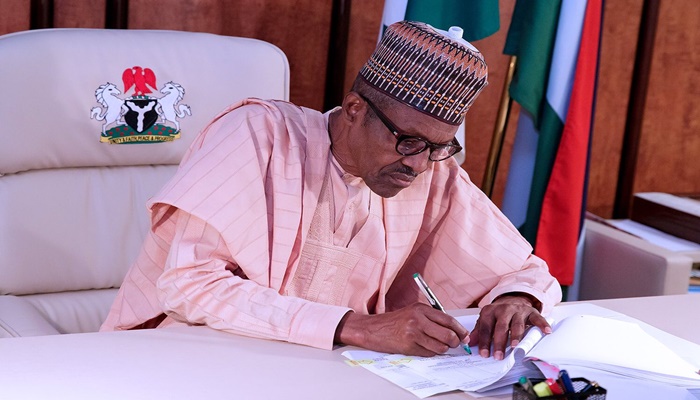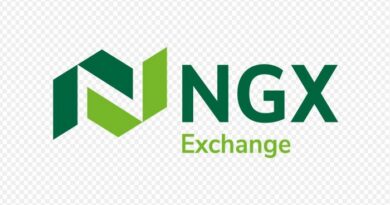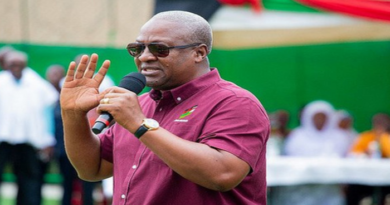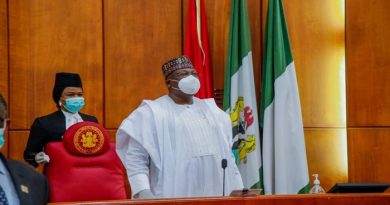Forbes rating on Nigeria, confirmation of unfriendly business environment – Economists
Despite government’s effort to boost business environment in the country and improve on ease of doing business, analysts say that Forbes rating on Nigeria as the 110th best country to do business and 14th in Africa is a confirmation of the unfriendly business environment in Nigeria.
Economists who spoke with Sunday Independent stated that the report realigned with the report of the World Economic Forum (WEF) on Global Competitiveness and World Bank Ease of Doing Business released last year.
They said that government must wake up to the task of implementing policies that will improve on the country’s ease of doing business, as they also canvassed that Nigerians should focus more on how business can make impact to reduce poverty and infrastructural issues the country is currently facing.
John Chukwu, Managing Director of Cowry Assets Management Limited in his view said that though it is an improvement from the 115th position that we are in the previous year, it is a confirmation of the country’s weak business friendliness.
“it is a confirmation that the economic environment is still unfriendly to do business, bringing the fact that there were 13 countries including South Africa, Rwanda, Botswana, Ghana, Kenya and the likes; small countries doing better than Nigeria, it confirms that it is aligning with the report of the World Economic Forum on Global Competitiveness where Nigeria was in 2017 rated at 125 out of 167 or the World Bank ease of doing business where Nigeria was rated 146.”
Chukwu stated that this amounts to a clarion call for the government to begin to implement policies that would improve on things like property rights, tax collection, tax administration, issue of freedom, personal freedom, among others.
Tope Fasua, an economist and the CEO of Global Analytics Consulting Limited in his view said that Forbes is more on the esthetics side that focuses on rich lives, the richest and the likes, that he won’t take them very serious.
But, he however said that Nigeria should still be happy because the country has always featured as perhaps the poorest country and that if there is good news like this, it must be celebrated.
“We should still be happy for our country because we have always featured as perhaps the poorest country and if we have any good news like this, let us celebrate it. However I won’t place a lot of premium on it,” he said.
He advised that Nigerians should look at how business can make impact in Nigeria so that it can reduce poverty and infrastructural issues facing the country currently.
On what the country can do to improve, Fasua said there is need for the fixing of the basic infrastructure.
“For example one of the biggest problems of doing business in Nigeria which is often not said is that some people do not have money to buy what you are producing, the purchasing power is low and the purchasing power must be high so that it can assist what you are selling, so that you can sell more.
“If you are a broker, producer, foreign producer, whatever the case may be; that means you must fix things like security, unemployment, which often lead to insecurity. Know how to manage infrastructure, not to build them alone but manage them,” he said.
Fasua further stated that more capacities must be built to be able to do things independently and not focus mainly on importation all the time.
“We must also build a lot of capacity to do things on our own, not to import them all the time. Each time we import, we also have to import their spare to manage some of those infrastructures. My own take is that we must stand up for ourselves to be able to attract more business and capital,” he said.
Ayodeji Ebo, Managing Director of Afrinvest Securities, said that what is responsible for the improvement at the world level was that there are some initiatives that this administration has been doing in terms of ease of doing business that may be responsible for the result.
In Africa, however he stated that it may be that a lot of other countries in Africa are coming up with a lot much more better initiatives than Nigeria and as a result, has dropped us in terms of the ranking.
On what to do to improve, Ebo noted that the will power must be there and efforts must be to intensify on the various criteria been used for the rating.
He said that there should be improvement in the judicial system which is still very poor.
“Our judicial system is still very poor, there is need to restructure the judiciary in such that if any investment related issue comes, we will be able to get justice; that will also go a long way to protect potential investors,” he said.
However, Wale Oyekoya, a former Chairman Lagos Chambers of Commerce and Industry (LCCI), Agric and Agro Allied Group said that there is nothing to celebrate in it if we are 115 last year as we are 110 this year, that the economy of this country is not really progressive.
“We are supposed to be doing better, that means we still depend on this mono economy of oil, when we are suppose to have diversified. Currently agriculture has been a ruse, they really need to do more to improve on the agricultural sector; they need to improve on infrastructure because if you do not improve on the infrastructure, you cannot do more order to improve the economy.
Oyekoya said government needs to pump in more money into agriculture to encourage people to go into it.
“I believe the government need to do more to pump more money to encourage people to go into agriculture and if you look at the prices of oil, it is going down, I don’t know when this government is going to get it together so that they can focus more on other sectors rather than oil,” he said.
Credit: Sunday Independent




